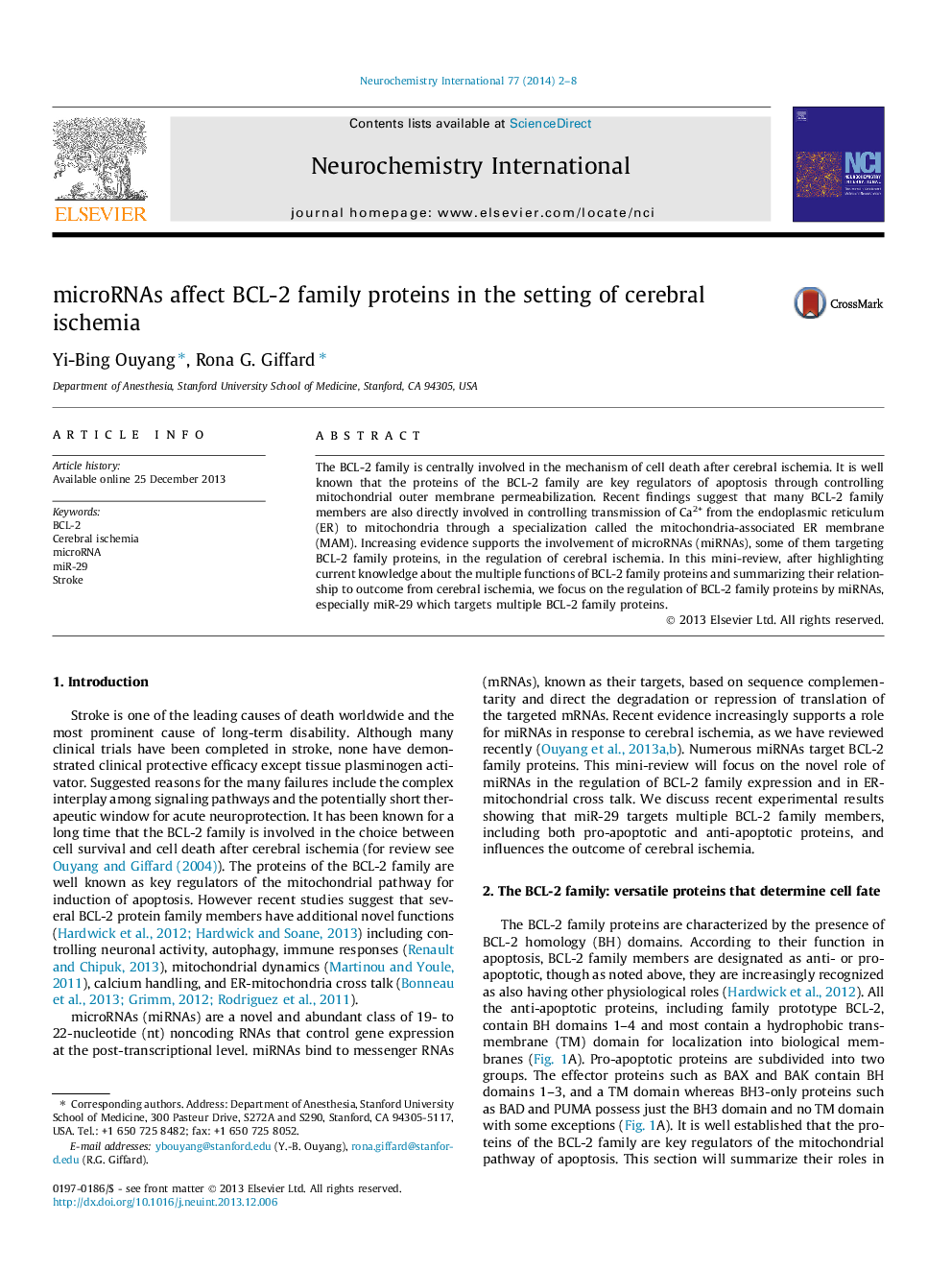| Article ID | Journal | Published Year | Pages | File Type |
|---|---|---|---|---|
| 2200547 | Neurochemistry International | 2014 | 7 Pages |
•BCL-2 family regulates cerebral ischemic outcome.•BCL-2 family regulates ER-mitochondrial crosstalk.•microRNAs regulate the BCL-2 family.•miR-29 targets multiple BCL-2 family members.
The BCL-2 family is centrally involved in the mechanism of cell death after cerebral ischemia. It is well known that the proteins of the BCL-2 family are key regulators of apoptosis through controlling mitochondrial outer membrane permeabilization. Recent findings suggest that many BCL-2 family members are also directly involved in controlling transmission of Ca2+ from the endoplasmic reticulum (ER) to mitochondria through a specialization called the mitochondria-associated ER membrane (MAM). Increasing evidence supports the involvement of microRNAs (miRNAs), some of them targeting BCL-2 family proteins, in the regulation of cerebral ischemia. In this mini-review, after highlighting current knowledge about the multiple functions of BCL-2 family proteins and summarizing their relationship to outcome from cerebral ischemia, we focus on the regulation of BCL-2 family proteins by miRNAs, especially miR-29 which targets multiple BCL-2 family proteins.
